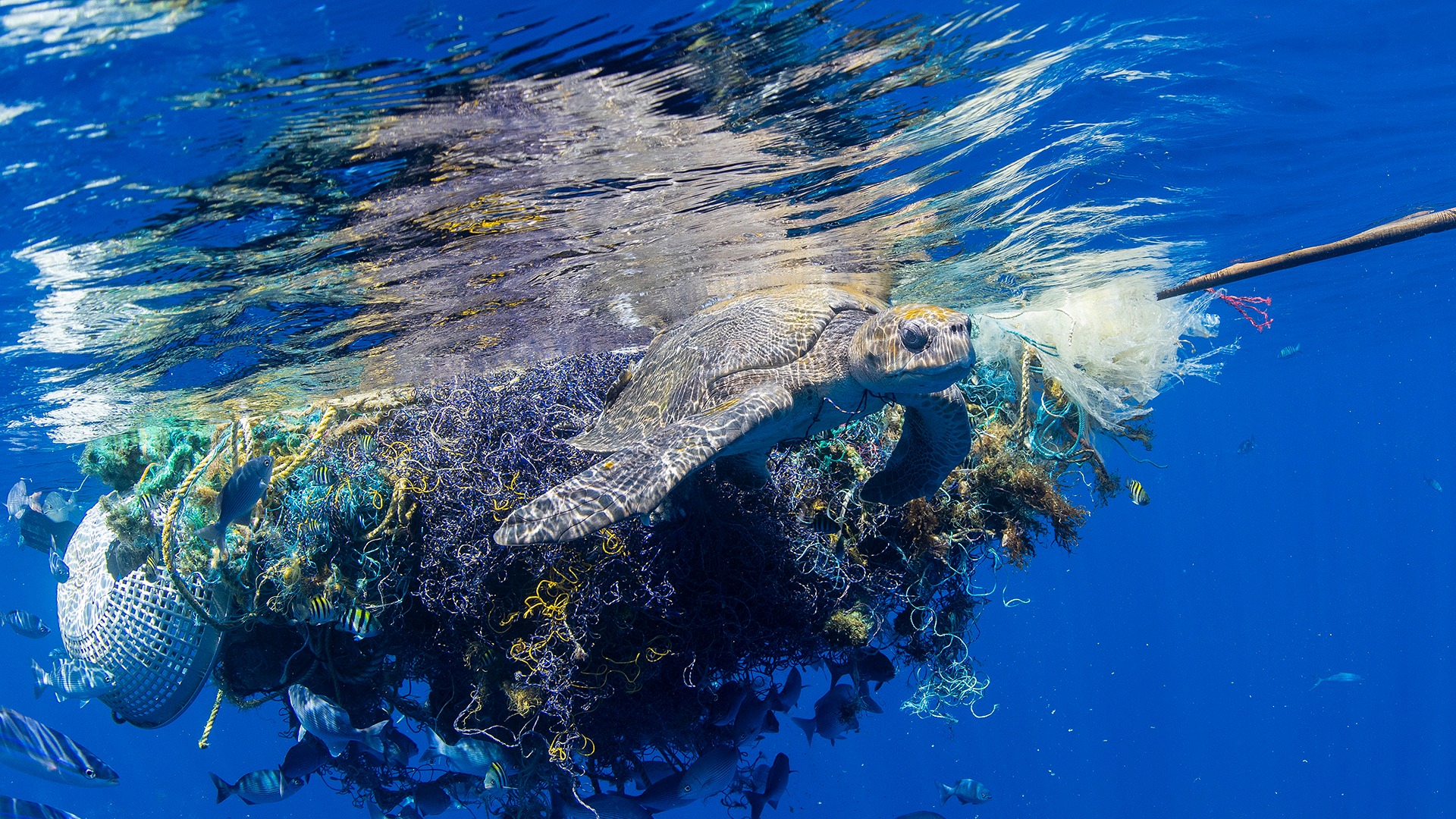Several million tons of mismanaged plastic waste are dumped in the oceans yearly. Global tracking is only possible with the geographical reach of satellites. Despite the urgency, the topic of remote, unsupervised detection of floating marine waste is still at its infancy. The interest of the proposal is for floating macro plastic. There is no enough evidence about which technology is best for its remote detection. Although commonly accepted that only combined information from multiple types of sensors will allow effective monitoring, most of current research is focused on optical sensing, in visible and infrared spectrum. However, these techniques are easily hampered by bad weather and light conditions, preventing continuous scanning. Additionally, attached marine life can radically change plastic optical signature (biofouling). Microwaves (MW) do not suffer significant atmospheric impairments, and can reveal new scattering or/and emission features of marine plastic, that are undetectable to optical instruments. Although being a mature technology for several land and sea Earth Observation missions, fundamental research work is needed to find the best MW sensing techniques (among passive or active) and best frequency bands for marine litter detection. There is almost no such work or data published.
Firstly, systematic simulation and experimental tests are required in controlled scenarios to enable distilling the conditions (litter concentration, sea state, materials, etc.) that influence the probability of litter detection. Secondly, known analysis techniques need to be adapted to enhance marine litter detection. In a subsequent stage, tests must be extended to outdoor controlled environment.
The project is expected to lay the foundations for remote satellite detection of floating marine litter using MWs, and identify the best operation modality. It will also produce the first systematic database of such measurements, to be made available to the scientific community.

